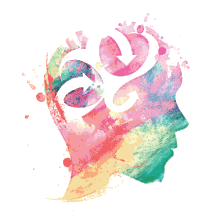
TAKE CHARGE OF YOUR MENTAL HEALTH RECOVERY
THE “RECOVERY PROTOCOL” BREAKTHROUGH
-Part 3-
It is recommended that the reader print the “Flash Drive Forms” and “Terms and Definitions” page prior to reviewing this online educational platform to aid one’s comprehension and understanding.
Recovery Protocol-Part 3
Making of a Recovery
To support the inclusion of the “Recovery Protocol Breakthrough” in the meeting room space, salient recovery data is required for the person and their provider. As a result, Citizen Psychiatry has developed our proprietary, check-off list, “Flash Drive Forms” for consumers, available on this platform, to port critical recovery data, completed in the comfort of one’s home, into The Meeting Room, in less time than watching a thirty-minute sitcom TV show. In a single sitting with these forms in the Meeting Room, the provider can see the chief components identified that impede recovery and personal resources that build recovery, rather than taking months to accumulate the same information. The Flash Drive Forms information also maps out the recovery landscape of a person’s life, painting a broad picture of the road traveled to survive to this point in their life and the information required to make a recovery possible. This program utilizes Flash Drive Forms to kick-start recovery and see it through. Also, the program outlines a step-by-step guide on the program site for this purpose. In addition, there is a section on the Flash Drive Forms devoted to physician providers and the patients served.
The Recovery Conception
The first generation of the concept and principles of Recovery-Orientation and how it is applied came first. The aim was to create a community and institutional system oriented towards a climate that supports making recovery possible since taking hold in the 1980s. Since then, adopting a recovery-oriented climate has shown through decades of research to culture a space for a person to empower themselves towards living a person-centered life. Countries like Ireland, the UK, the US, Australia, and Canada, for example, have adopted this orientation to recovery approach, producing robust results. In the US, for example, the American Psychiatric Association (APA) adopted and produced training modules aimed at showing their members and other providers in mental health to outline how to generate a recovery-oriented climate within their meeting room with the consumer. Access to these modules is through a link in the chapter, The Framework for Recovery Orientation.
With The Recovery Protocol Breakthrough, the climate setting of recovery-orientation, specifically within the Meeting Room of a provider has now been translated for the first time into a dynamic program with step-by-step methodology that grounds this approach in today’s science for providers and consumers that is hands on and measurable from the perspective of the person’s subjective experience.
The Big Ask
Today, many people find the world of psychiatry and mental health services as puzzling and confusing after being told repeatedly, “Effective treatment is a walkway starting with your primary doctor.” For consumers experiencing medication failure, such a starting point has left them with the question of,
-What happens next when medications are not enough, besides more drug trials?
In Citizen Psychiatry, the answer lies with each consumer to take the reins of their life into their hands. “The Big Ask” is a challenge made to consumers to be an agent of change. It involves consumers approaching and speaking to their providers about the recovery protocol program to kick-start their recovery, be they psychiatrists, Nurse Practitioners, Social Workers, Primary Care Physicians, Peers, Psychotherapists, Community Support Workers, Clergy, or Psychologists. Citizen Psychiatry sees this regenerative practice as the second half of the equation for the mental health and psychiatric community.
The program supports consumers taking charge by offering an approach for speaking with their service providers that is adaptable to those taking on new professional services. With the chapter on the program site called, Providers On Board, the “words” to use are provided.
In closing, for those experiencing the condition of “medication resistance” with longstanding depression and anxiety disorders that are undermining their lives, the Recovery Protocol Breakthrough provides a program of practice that can, in partnership with one’s service provider, be applied to provide the opportunity to Own One’s Life Again.
Stand Up |Take Charge
“After all, it is your life to live, not theirs.”
“We are all in this together.”
-The Recovery Specialist
